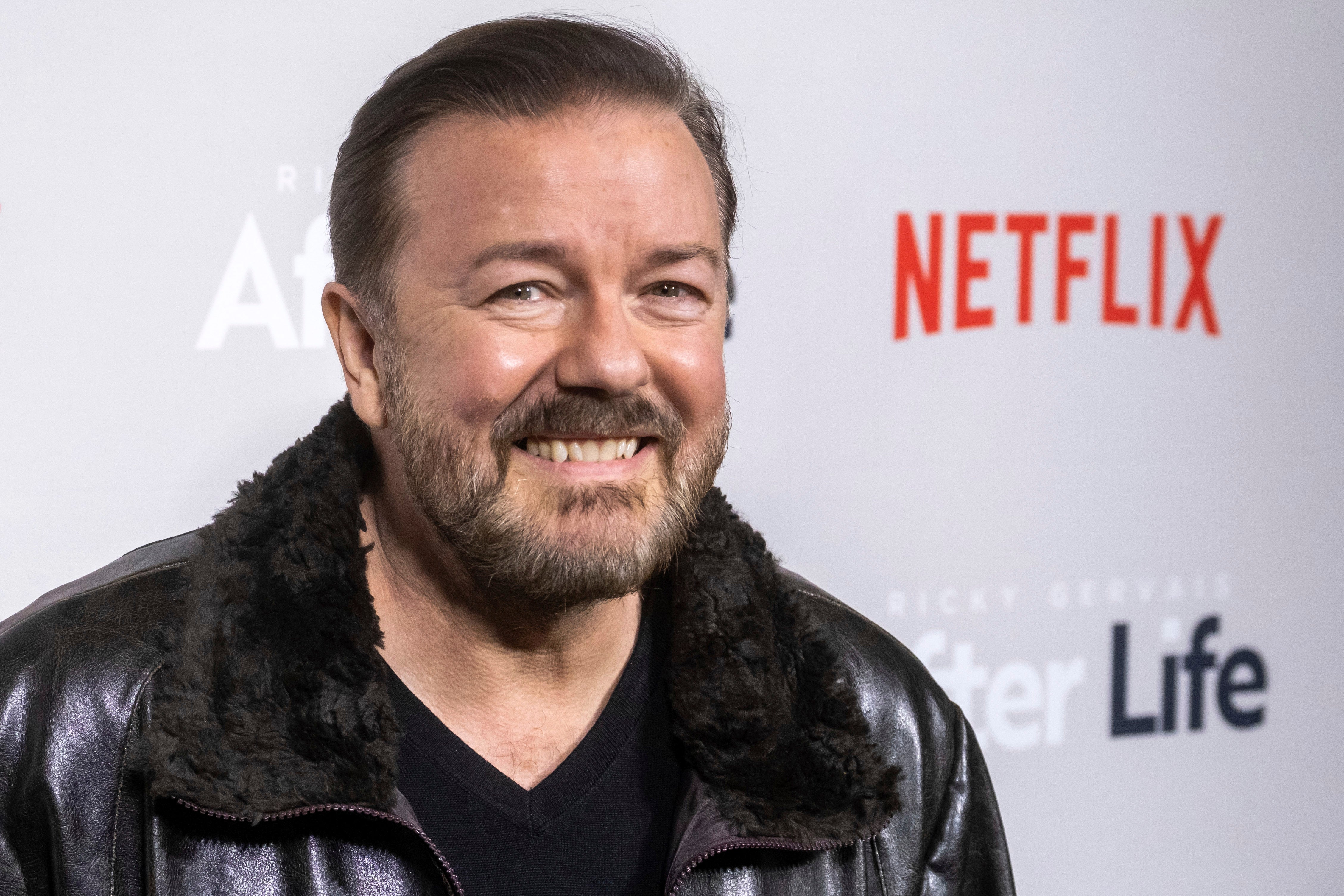The Independent's journalism is supported by our readers. When you purchase through links on our site, we may earn commission.
In defence of Ricky Gervais and the right to offend people
It’s fine if you find Gervais and his jokes offensive, but I’d rather live in a world where people are offensive than one where everyone agrees


Before I say anything about Ricky Gervais, I want to tell you two short stories.
In 2004, a woman in Birmingham wrote a play about a disabled child who was raped inside a Sikh place of worship. Some Sikhs were offended that this fictional storyline was set at a Gurdwara (Sikh temple) and went on a protest that eventually turned violent. The play had to be shut down. Some groups wanted the writer, a Sikh woman herself, arrested for allegedly stirring up anti-Sikh tensions.
The second story is as follows. Several hundred years ago, when the region now known as India was ruled over by the Mughal emperor Aurangzeb, he was angry that Hindus refused to convert to Islam. To protect their freedom of religion – the right to believe in something the emperor found offensive – a Sikh guru gave up his life. He told the community: protect freedom of belief, because it affects all of us.
Both these incidents and stories deeply shaped my life, and while both involve Sikhs, they could be about anyone and based anywhere. I also mention them because conflicts over “offence” are littered throughout human history, and the issue is much wider than just some comedian making jokes.
On that note, over the weekend, I decided to watch Ricky Gervais’s new Netflix special, SuperNature, partly due to the controversy it has been causing. A number of people have said they found his comments offensive – particularly those about the trans community. Comedy is an entirely subjective matter, so I won’t rate it for you. Personally, I enjoyed about 60-70 per cent of the jokes, but I respect the right of others to find them distasteful and offensive.
Gervais says, very early on, that he doesn’t need to do this. He’s already rich, he doesn’t need to cause controversy to get richer. He’s doing it for an important principle. The show, essentially, is about him defending the right to be offensive. The offensiveness is the point. That’s where I’m with him 100 per cent, for two important reasons.
Firstly, without the right to offend, we lose the right to challenge ideas and norms. I’m not arguing about whether Gervais is good or bad, or whether he is offensive or not. It’s fine if you find him and his jokes distasteful. But I’d rather live in a world where people are offensive than one where everyone agrees. Then we would have no diversity of thought or ideas.
I was deeply involved in the Sikh play controversy, now nearly 20 years ago, because I defended the right of the writer to tell her truth. For that, we were both labelled “traitors” by some Sikhs. They had a right to find her offensive but they should not have the right to stop her from speaking out.
To take another example, even the idea of gay marriage was offensive to the norms of religious institutions. LGBT+ people fought hard for that right to challenge those norms. Or think of the religious preacher on your local high street. I don’t agree when they tell me I’m going to hell. But without the right to offend people, they cannot preach and I do not have freedom of belief. Therefore I must live in a world where someone thinks I’ll go to hell.
The second point in defence of offensiveness is even more important. When we clamp down on “offensive” speech, usually through the law, it’s always used against minorities first. We are the first victims – not rich, middle class white guys.
To keep up to speed with all the latest opinions and comment, sign up to our free weekly Voices Dispatches newsletter by clicking here
Around the same time as the Sikh play, Muslim groups started campaigning for laws against hate speech, to protect against “insulting words and behaviour”. Comedians like Rowan Atkinson spoke out. But the law wasn’t used against comedians, it was mostly used against Muslim preachers. It was used against people who spoke out against the war on terror. The first victims of any restrictions to free speech are always the most marginalised in society, which is why we must argue for more freedom – not less.
This issue goes far beyond comedians. In 69 countries around the world, people can be imprisoned or even executed for the crime of “blasphemy” – the idea that beliefs should not be challenged or contradicted. Across India, such views are frequently used by extremist Hindus to terrorise and lynch Muslims.
Somehow, we went from not wanting people to discriminate, to not wanting people to be offensive at all. That’s dangerous enough as it is. What’s worse is the idea that people who are mildly offensive should be completely shunned – ie “cancelled” and never heard from again. Someone is either on the side of angels, or must be cancelled. They’re either “woke” or “racists”.
But the world isn’t black or white, it’s in hundreds of shades of grey. I may not agree with everything – or even anything – Ricky Gervais says. But that’s ok, because it’s more important to protect the right of people to be different than to be inoffensive.

Join our commenting forum
Join thought-provoking conversations, follow other Independent readers and see their replies